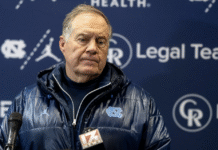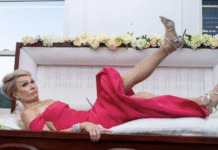In a recent display of resilience and empowerment, Melissa Weaver, a 30-year-old job seeker from New York, has sparked a nationwide conversation about workplace expectations and the concept of “pretty privilege.
Weaver, who applied for a vice-president of HR position at a tech company, took to TikTok to share her story of rejection, not for lack of qualifications, but for choosing not to wear makeup to her interview. This revelation, viewed by over 700,000 people, has not only shed light on outdated professional standards but also rallied a community of supporters around Weaver.
Weaver’s account of her interview process reveals a story all too familiar to many women. Despite her impeccable qualifications, aligning perfectly with the job description, and a successful interview, she was informed that her appearance—specifically, her decision not to wear makeup—was taken as a sign of insufficient effort. This feedback, which seems to reflect a broader issue within professional settings, has ignited a wave of support and discussion among Weaver’s followers and beyond.
Supporters of Weaver have voiced their outrage, with many highlighting the incident as a clear example of “pretty privilege” and the unrealistic standards women are often subjected to. The conversation has expanded to include the legality of such hiring practices, with many questioning the fairness and equality of evaluating candidates based on appearance rather than competence and skills.
The incident has also sparked debates on social media, with users sharing their experiences and expressing solidarity with Weaver. This communal sharing has underscored the pervasive nature of appearance-based discrimination in the workplace and has prompted calls for change across industries. It has brought to the forefront discussions about the necessity of makeup and the double standards that women face, compared to their male counterparts.
In response to the incident, experts have weighed in, highlighting the implications of such biases in hiring practices. Studies, like the one conducted by Fairygodboss in 2021, have shown that appearance significantly influences perceptions of professionalism, especially for women. This incident with Weaver serves as a real-world example of these findings, sparking further analysis and debate on the subject.
Amidst the controversy, Weaver has remained poised and reflective, questioning the broader implications of her experience for professional women everywhere. Her situation has prompted comparisons to other forms of appearance-based judgments in the workplace, such as attitudes towards facial hair or tattoos among male applicants, opening up a broader dialogue on professional standards and expectations.
Weaver’s story has not only highlighted her personal resilience but has also become a catalyst for a larger movement challenging outdated norms. Her followers and supporters have rallied around the idea that professionalism should be measured by skills and performance, not by adherence to conventional standards of beauty.
The discourse surrounding Weaver’s experience has also led to a surge of personal stories shared by other women, who have faced similar discrimination. These accounts, ranging from critiques of outfit choices to comments on physical appearance, underscore the systemic nature of the issue and the need for a shift in perspective within professional environments.
In a poignant reflection, Weaver has expressed her dismay at the continued relevance of appearance in professional judgments, especially as it pertains to the requirement of makeup for women. Her stance has resonated with many, sparking conversations about gender-specific expectations and the importance of fostering a more inclusive and equitable professional landscape.




